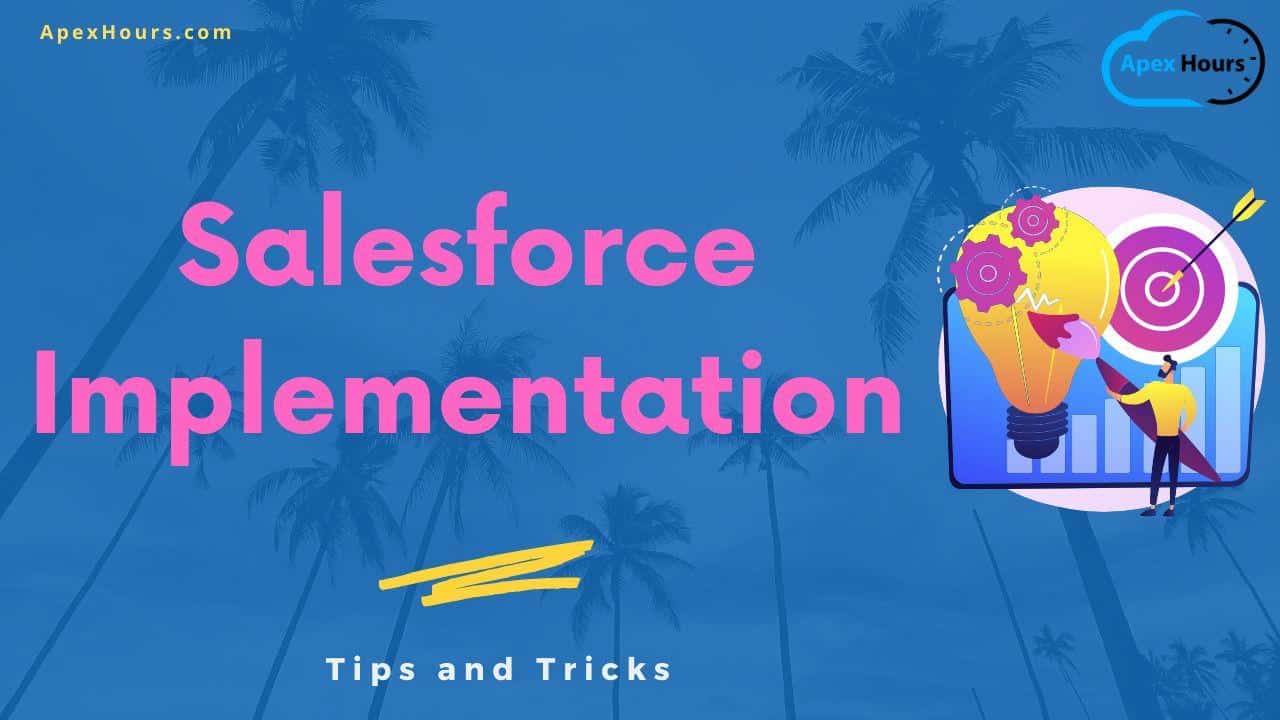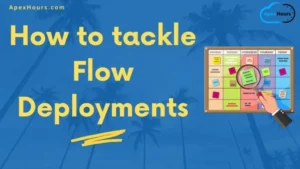Join us to learn about Salesforce Implementation tips & tricks and different stages in the Software development life cycle. The essential components of any Salesforce Implementation are Design, Development and deployment, Testing & QA, and Launch and support. Let’s see what best practice you should follow to implement Salesforce for any new client. Let’s start our Salesforce Implementation Guide.
What is Salesforce Implementation?
Salesforce implementation is rolling out, configuring, and developing a Customer Relationship Management (CRM) tool/product. Salesforce implementation services include consulting, configuration, development, Integration, and data migration.
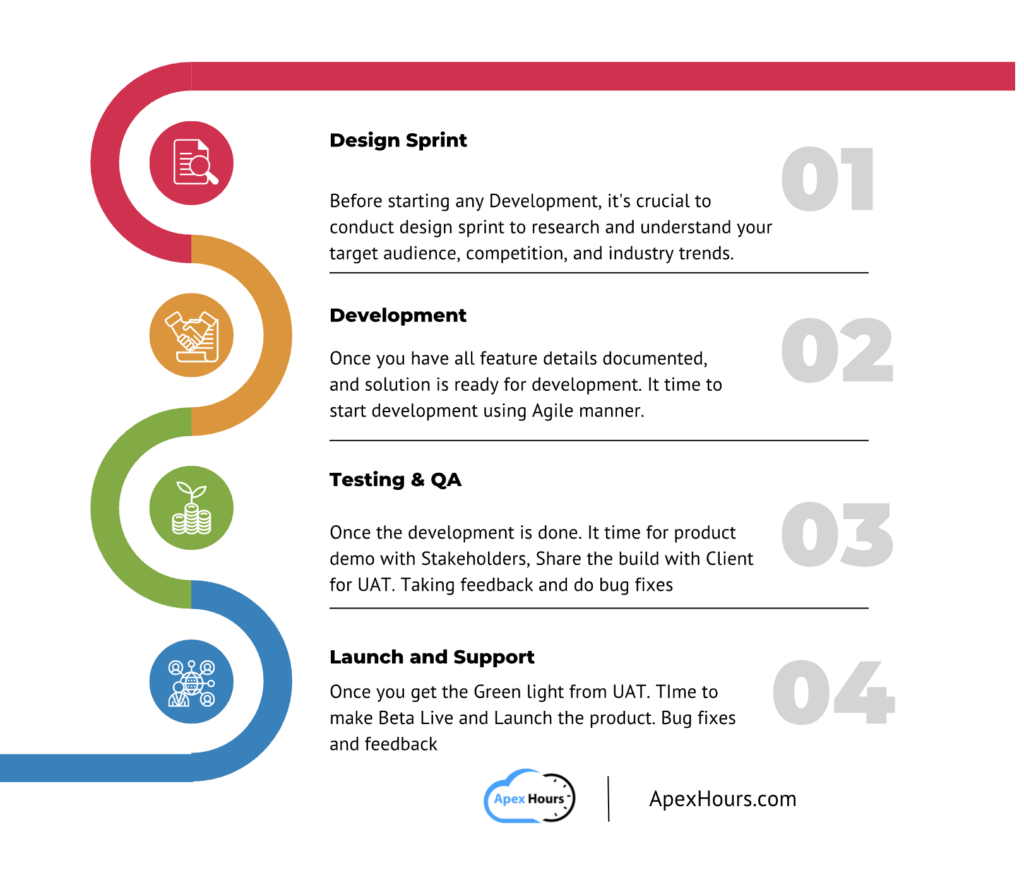
How do you implement Salesforce Successfully?
A successful implementation focuses on agile methodology, communication, and critical business activities. It typically follows the below Implementation process:
- Design / Discovery Sprint: Before Starting the development, you should conduct the discovery sprint, define the stakeholders, Define high-level goals, identify user Persona, and Gather requirements. In the end, Prioritize Requirements and put them in the backlog.
- Development & Deployment: Once you have all feature details documented and the solution is ready for development. It is time to start development using Agile and Deploy changes in upper environments.
- Testing & QA: Once the development is done. It is time for testing and QA. Then, the product demo with stakeholders shares the build with the client for UAT. Take feedback and fix all bugs, if any.
- Launch and Support: Once all bugs are fixed. Then, go for beta live and launch the product. If you are doing first-time production deployment, then start with a small set of groups for quick feedback. Then, go with a big project and go live.
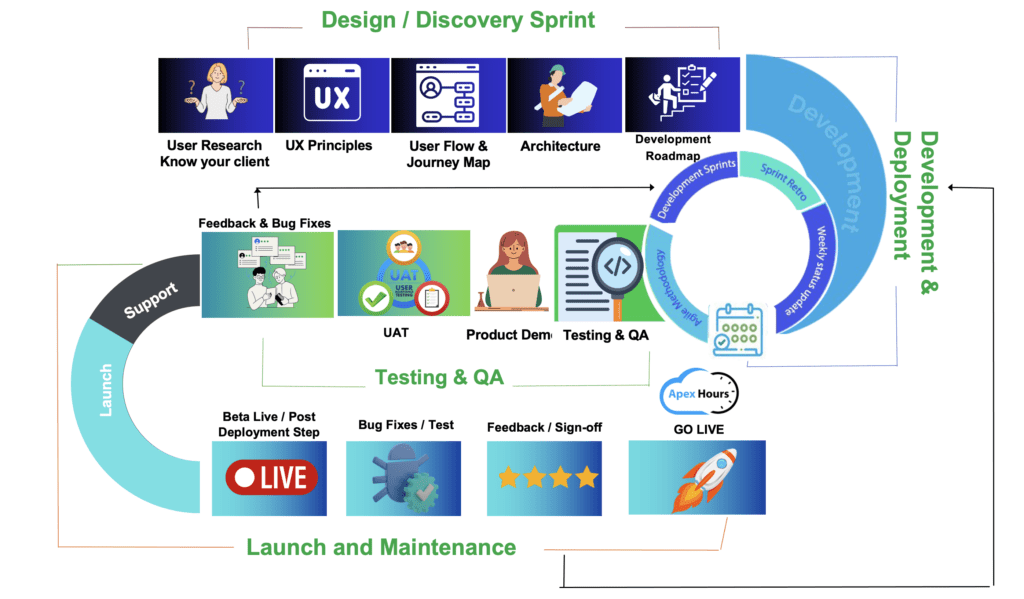
Salesforce Implementation Tips & Tricks Video
Let’s talk about the Salesforce implementation process in detail.
The Design Discovery
Design Sprint is also called discovery. Before starting any development, conducting a design sprint is crucial to research and understand your target audience, competition, and industry trends.
- Define Stakeholder: First thing understand who is your stakeholder and understand there need So you can define the high level goals for the project.
- Research: First step is understand your client and industries. In this step go through and understand the requirement of client and conduct proper market research to identify gaps in potential user expectations.
- Identifying User Persona: To make sure the product we build finds it audience, and what they want. Know our users, understand their needs and their troubles.
- UX Principles: UX principles are fundamental pieces of guidelines we use to make easy-to-use. pleasurable design, Apply them to select, create and organize elements and features in the project.
- Finalize User Flow: Creating a seamless user flow is imperative to align the needs of your business with those of your users.
- Wireframes: Wireframing is an essential tool you can use in the project scope definition and app development process.
- Information Architecture: Information Architecture design at organizing content so that users would easily adjust to the functionality of the product.
- Build Current Architecture.
- Future State Architecture.
- Development plan: Draw our a comprehensive development plan to tackle various modules decided in the project architecture.
- Dependencies list: Check for dependencies in the form of external APIs and decide whether and when we would need them.
- Project Architecture: Architecture projects in a way that is is scalable and does not required mending on the days of heavy traffic.
Learn about Designing Salesforce Solutions with Empathy. Here is a sample discovery work plan & Deliverables.
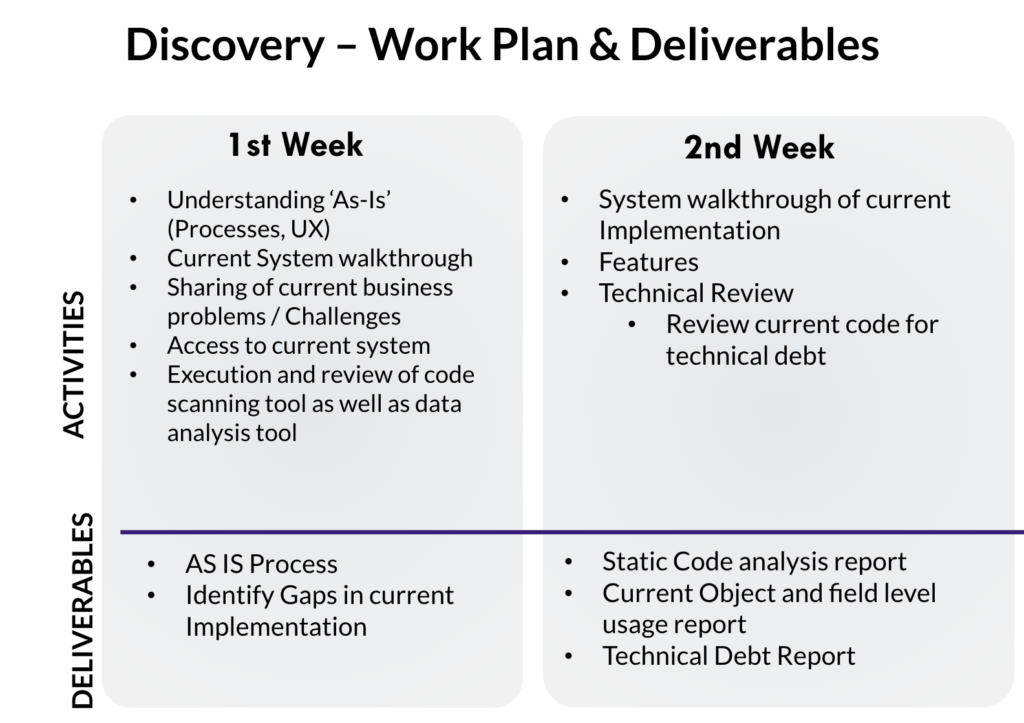
Development & Deployment
There are different development methodologies for Software development. You might use waterfall or agile based on your organization.
1. Development
Here we will talk about Salesforce Agile implementation. Once you have all feature details documented and solution is ready for development.
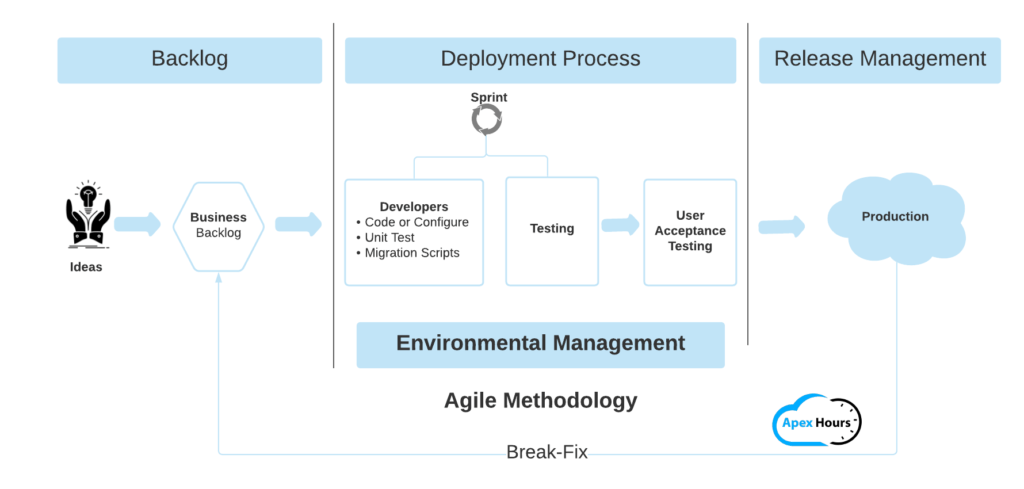
Learn more about the Salesforce Development and Deployment process.
- Backlog: This is the gathering of ideas, requirements, and prioritization of requirements.
- Development Process: This is the process of implementing the defined requirement within the backlog.
- Release Management: This is the process of managing the completed application/enhancement into production
Scrum Roles, Events, and Artifacts
Here are Scrum Roles, Events, and Artifacts.
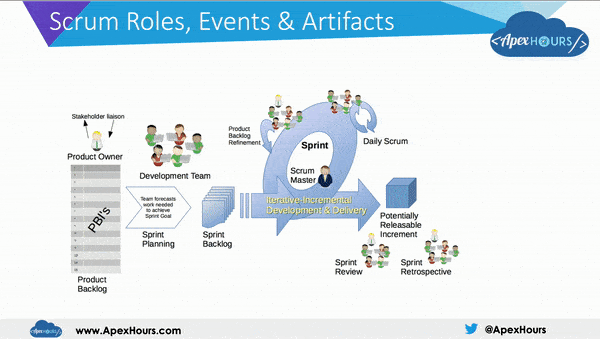
Salesforce Development
Follow Salesforce Best Practices to Improve Salesforce Code Quality. Good Quality of code helped to stay away from Future Tech Debt in Salesforce.
- Check Salesforce Best Practices.
2. Deployment
There are a number of tools currently in Salesforce for deployment of these applications, including change sets, Workbench, SalesforceDX, DevOps Center, the Force.com migration tool, CI/CD Pipeline and 3nd part AppExchange tools. Learn about Salesforce Development and Deployment Process.
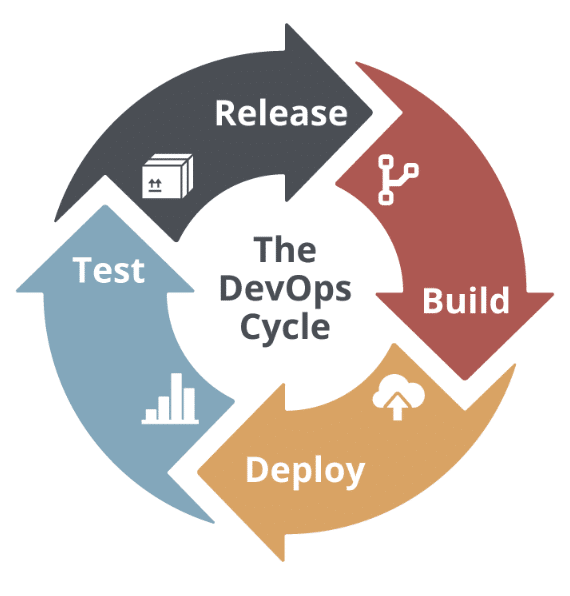
Learn more about Salesforce DevOps.

Testing & QA
Once the development is done. It time for product demo with stakeholders, share the build with client for UAT. Take feedback and fix all bugs.
- Code Review: Testing also includes the code review process as well.
- Product Demo: Give a demo to shareholders and take feedback.
- Build is Shared with the Client For UAT: Learn more about the list of personnel involved in this whole process of UAT.
- Feedback and Bug Fixed:
Learn more about Salesforce Testing and Strategy.
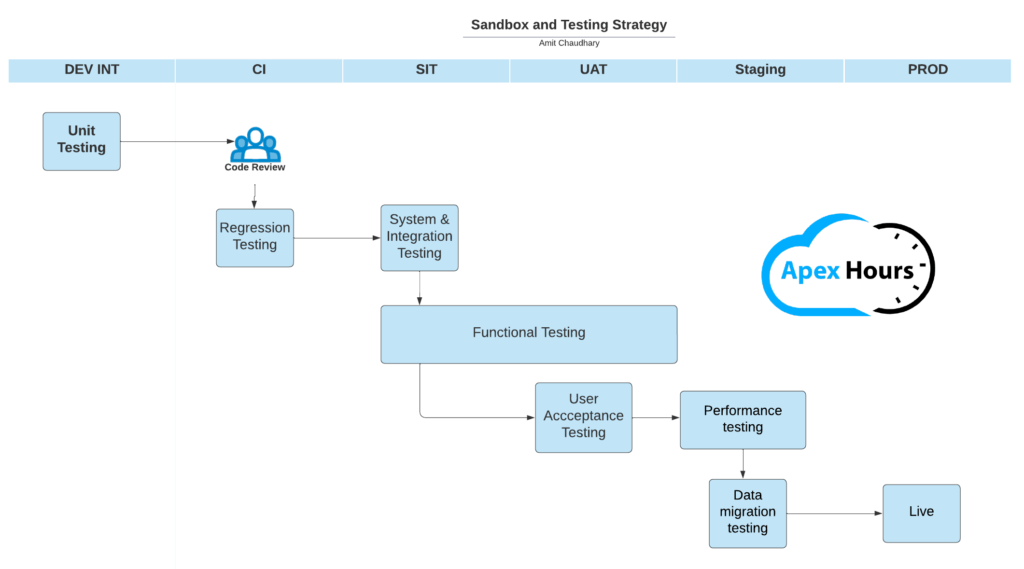
Launch and Maintenance
Once all bugs are fixed, then go for beta live and launch the product.
- Make the Beta live: If you are building a product for the first time, make the beta live before going live with a selected user.
- Bug Fix: Take feedback from beta users and do testing to find the bug. Fix all bugs before going live.
- Feedback: Take feedback and put changes in the backlog for further deployment.
- Final Launch: Now it is time for the final launch.
FAQ’s
We should divide the Salesforce implementation process into the below steps
1) Design and discovery
2) Development and deployment
3) Testing
4) Go Live and Launch planning
Salesforce Implementation partners are Salesforce partners who help customers and clients with Salesforce project implementation.
Summary
Salesforce DevOps is also one of the major component on Salesforce Implementation. I hope this Salesforce Implementation Tips & Tricks will helped you for your project. Follow Salesforce Best practices to implement the product.

